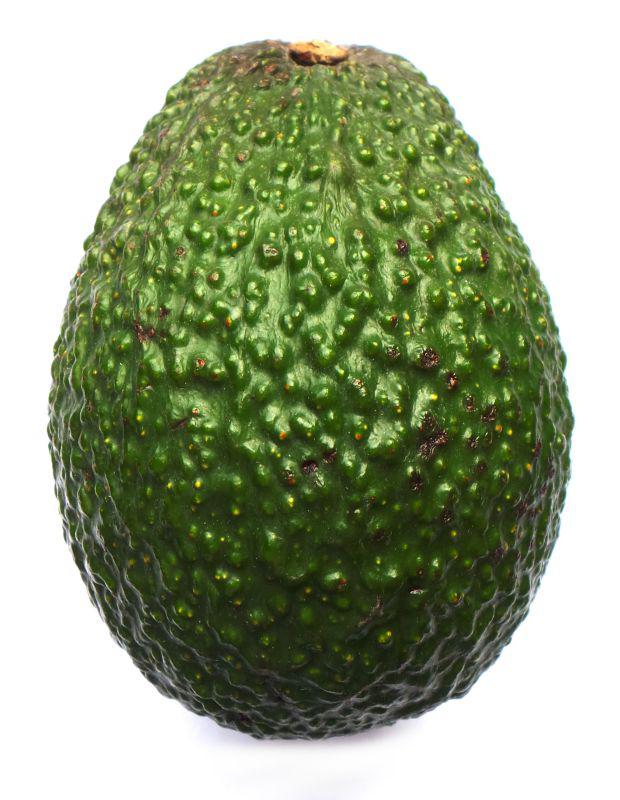Where are avocados from?
Avocados trees are probably native to souther Mexico, though they were being cultivated down the Rio Grande into central Peru before the arrival of Europeans. They are members of Lauraceae family and are related to camphor, laurels and cinnamon. There are 3 main types of avocado, Mexican, Guatemalan and West Indian, although avocados are generally grown in in the tropics and subtropics some cultivars can be grown in warm temperate regions.
The name Avocodo comes from the Spanish 'Aguacate', which itself comes from the Aztec origin of 'ahuacatl', so it's of no surprise then to learn that the Avocado was a symbol of fertility to the Aztec people.
Real Foods fresh organic avocados usually come from Spain, occasionally we buy them in from South Africa or the Americas depending on seasonal availability. If you'd like to know where our current stock is sourced from , please do email us at [email protected] and we'll let you know.
What do avocados look like?
Avocados, also referred to as Alligator Pears, are actually a single-seeded berry. The skin varies in colour but is usually dark green, whilst the fruits themselves are pear-shaped, oval or almost round depending on the cultivar.
And on the inside of an avocado?
Avocados have an inner seed consisting of an oily endosperm layer around a central ovule. The flesh is oily, rich and pale green or cream coloured, it is a deeper green near the skin and creamy pale next to the inedible seed. The oil has amazing storage properties and can be kept for up to 12 years if kept correctly! They are a highly digestible food, often recommended as baby food and as a source of long-lasting energy. The oil is also used in a wide variety of body care products, primarily for their moisturising abilities.
What do avocados do?
Avocados are extremely high in beneficial monounsaturated oils which can lubricate joints and lower blood pressure, they contain between 10 and 34% (depending on the cultivar), the only other fruit with a higher oil content is the olive. The flesh and oil of avocados contain antioxidants and are anti-inflammatory, helping to improve women's fertility and lowering the risk of diseases like arthritis. This is because they are a source of omega-3 fatty acids (helping to reduce arthritis and improving joint health) and polyhydroxylated fatty alcohols (PFAs) which are anti-inflammatory.
Avocados are an excellent source of potassium (600mg per 100g flesh) and are low in sodium, this can help reduce your chances of high blood pressure and strokes. The antioxidants also help to protect you from heart disease. The healthy fats in avocados have been shown to dramatically boost fertility and increase the chance of success with IVF treatment. The majority of avocados nutrients are near the skin, so peel avocados with care.
Clinical studies have shown that avocado oil can reduce blood cholesterol and phospholipids, while not increasing body weight and retaining high-density lipids ('good' cholesterol). This is partly due to their high oleic acid content (helping raise 'good' cholesterol and reduce 'bad' and also to support the cardiovascular system). Avocados also contain beta-sitosterol which reduces blood cholesterol levels. Avocado has 2-4% protein and has good levels of iron, copper, manganese and magnesium. They are also rich in vitamins A & E and have good levels of B vitamins and vitamin C. They have higher levels of thiamine (vitamin B1) than most cuts of beef!
So now you know all about avocados.... here's some brilliant recipes to use them in!
Easy recipe ideas include a quick guacamole (mash an avocado, add a few diced tomatoes and squeeze some lime juice in. Then mix together and serve with a little bit of fresh coriander, delicious and healthy.) Or simply throw avocado into your latest salad, they go particularly well with salty foods like nuts or anchovies.
Avocados contain tannin which becomes bitter when cooked, so avocado is usually added to dishes at the very end of cooking or served raw. In Brazil, the avocado is used mainly as a fruit and is added to sherbets, milkshakes and ice-creams.In Java, avocado is mixed with strong black coffee, sweetened and eaten as a dessert. Or try a Japanese favourite and have them with soy sauce or grated horseradish!
By Kim Betney